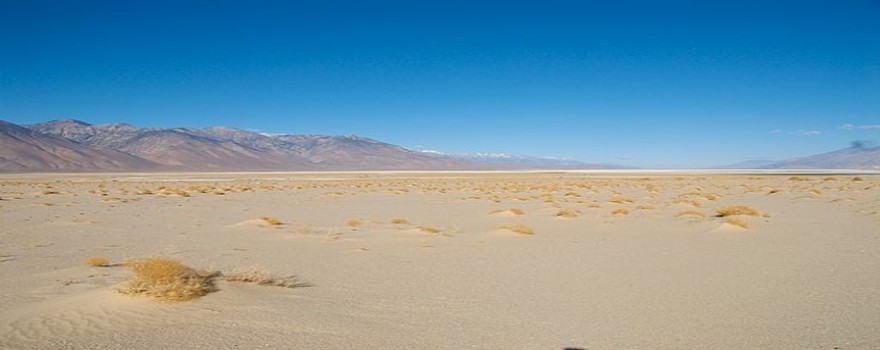
In science news this week: California, climate change and the trauma of the last decade; Los Angeles may store water under a lake drained to fill its faucets; Sustainable Swordfish: Fishing Deep for Conservation Solutions; Extending El Niño event predictions to a year; Pollution in Polish Rivers, and the Cucumber Solution; Stick-toting puffins offer the first evidence of tool use in seabirds; and more…
California, climate change and the trauma of the last decade “The wildfires were more destructive. The drought was the longest on record. And the storms, when they finally came, unleashed more water than our dams could contain. To live in California over the last decade has meant enduring a steady procession of weather-related disasters, each one seemingly worse than the last…” Read more from Phys.org here: California, climate change and the trauma of the last decade
Los Angeles may store water under a lake drained to fill its faucets “Quick shifts in climate have prompted Los Angeles to consider an unlikely place to bank some of its Sierra Nevada snowmelt: beneath dry Owens Lake, which the city drained starting in 1913 to fill the L.A. Aqueduct and supply a thirsty metropolis….” Read more from Phys.org here: Los Angeles may store water under a lake drained to fill its faucets
Sustainable Swordfish: Fishing Deep for Conservation Solutions “Deep below the ocean’s surface, where the light begins to fade, you can find them. Swordfish. Hunting for squid and mackerel in the twilight zone. But farther away an even hungrier predator awaits them—us. Americans eat almost 20 million pounds of swordfish each year. Unfortunately, fishermen struggle to catch healthy populations of swordfish without harming other sea life like sea turtles, dolphins, and whales. Though the U.S. West Coast swordfish fishery is one of the best managed in the world, fishing gears currently available to California swordfish fishermen still cause some harm to endangered wildlife…” Read more from Cool Green Science here: Sustainable Swordfish: Fishing Deep for Conservation Solutions
Extending El Niño event predictions to a year “A group of researchers from the Potsdam Institute for Climate Impact Research, Beijing Normal University and Justus-Liebig-Universität Giessen has found a way to predict El Niño events up to a year before they occur. In their paper published in the Proceedings of the National Academy of Sciences, the group describes their complexity-based approach to better predicting the seemingly random weather events…” Read more from Phys.org here: Extending El Niño event predictions to a year
Pollution in Polish Rivers, and the Cucumber Solution “In 1962, Rachel Carson wrote Silent Spring, warning the public of the dangers of pesticide pollutants to living things. While we have made strides in reducing pollution since, such as the banning of PCBs from commercial production in 1977, streams today are still in danger from different chemical cousins…” Read more from Envirobites here: Pollution in Polish Rivers, and the Cucumber Solution
A New Life for Old Bird Data “On June 7, 1982, researcher Donna Compton stood out on The Nature Conservancy’s Regal Meadows preserve in Minnesota, setting up bird survey stations. Buffeted by winds that gusted up to 45 miles per hour, she wrote down the animals she observed along the way. She heard the winnowing of a Wilson’s snipe and discovered a mourning dove nest with two eggs under a willow tree. A kestrel sailed overhead, hunting for its next meal. A mink ran across the road…” Read more from Cool Green Science here: A New Life for Old Bird Data
How do conifers survive droughts? Study points to existing roots, not new growth “As the world warms, a new study is helping scientists understand how cone-bearing trees like pines and junipers may respond to drought. The research addresses a classic question in the field: When conditions are dry for long periods of time, do trees survive by growing new roots to tap water sources, or by relying on established roots that already go deep…” Read more from Science Daily here: How do conifers survive droughts? Study points to existing roots, not new growth
Scientists Find the World’s Oldest Known Forest, Dating Back 386 Million Years “Scientists have discovered what they believe is the world’s oldest known forest — a set of 386-million-year-old fossilized root systems found in an old sandstone quarry in the Catskill Mountains in New York. The researchers say the new site is evidence that forests developed 2 to 3 million years earlier than previously thought. The findings were published recently in the journal Current Biology…” Read more from Yale Environment 360 here: Scientists Find the World’s Oldest Known Forest, Dating Back 386 Million Years
The thieving, bribing lives of plants “The last decade has brought fascinating dispatches from the botanical world—plants communicate, we have learned. Plants cooperate. Plants sense immediate threats and react to defend themselves. And plants even leverage ancient political wisdom in their machinations against enemies…” Read more from Envirobites here: The thieving, bribing lives of plants
Stick-toting puffins offer the first evidence of tool use in seabirds “Annette Fayet was scanning a colony of Atlantic puffins off the coast of Wales when something caught her eye. A puffin, gently bobbing on the sea, held a stick in its orange-black bill. Then, the seabird used it to scratch its back. “I was surprised and excited,” says Fayet, an ecologist at the University of Oxford who studies puffin migration. Puffins (Fratercula arctica) had never been seen using tools. In fact, no seabird had…” Read more from Science News here: Stick-toting puffins offer the first evidence of tool use in seabirds
Biodiversity has substantially changed in one of the largest Mediterranean wetlands “The Camargue in southern France is widely recognised as one of the largest and most biodiverse wetlands in the Mediterranean region. Recent research has now shown that grasshoppers, crickets and locusts, comprising orthopterans, and also dragonflies and amphibians have severely declined since the 1970s. This provides evidence of substantial deterioration of the Camargue ecosystem…” Read more from Science Daily here: Biodiversity has substantially changed in one of the largest Mediterranean wetlands
Scientists link La Niña climate cycle to increased diarrhea “A study in Botswana by Columbia University Mailman School of Public Health scientists finds that spikes in cases of life-threatening diarrhea in young children are associated with La Niña climate conditions. The findings published in the journal Nature Communications could provide the basis for an early-warning system that would allow public health officials to prepare for periods of increased diarrhea cases as long as seven months ahead of time…” Read more from Science Daily here: Scientists link La Niña climate cycle to increased diarrhea
Life could have emerged from lakes with high phosphorus “Life as we know it requires phosphorus. It’s one of the six main chemical elements of life, it forms the backbone of DNA and RNA molecules, acts as the main currency for energy in all cells and anchors the lipids that separate cells from their surrounding environment…” Read more from Science Daily here: Life could have emerged from lakes with high phosphorus
Lisa’s XKCD Comic Pick of the Week …

 Sign up for daily email service and you’ll never miss a post!
Sign up for daily email service and you’ll never miss a post!
Sign up for daily emails and get all the Notebook’s aggregated and original water news content delivered to your email box by 9AM. Breaking news alerts, too. Sign me up!
About Science News and Reports: This weekly feature, posted every Thursday, is a collection of the latest scientific research and reports with a focus on relevant issues to the Delta and to California water, although other issues such as climate change are sometimes included. Do you have an item to be included here? Submissions of relevant research and other materials is welcome. Email Maven

